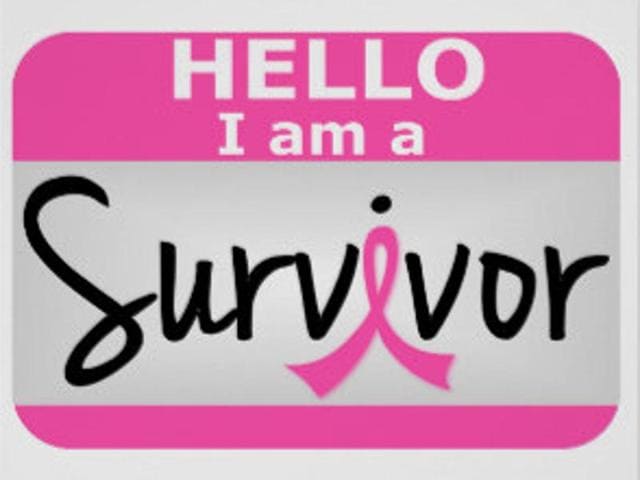
Advantages and Disadvantages of Egg Preservation: Essential Information for Women to Make Informed Choices
3 months ago | 5 Views
Egg freezing has existed for a considerable period; however, its significance has notably increased in recent years. As awareness of reproductive health expands and women's empowerment continues to rise, this advanced fertility preservation method is becoming more prevalent among couples and individuals, offering them the opportunity to pursue parenthood at a later stage in life.
Freeze your eggs, not your choices:
In a discussion with Lifestyle, Dr Swati Mishra, an IVF Specialist at Birla Fertility and IVF in Kolkata, explained that the procedure of egg freezing, also referred to as oocyte cryopreservation, is a type of assisted reproductive technology (ART) that involves the extraction, freezing, and storage of a woman's eggs to maintain her reproductive capabilities for the future. This technique not only allows women to preserve their own eggs for future use but also facilitates egg donation, where eggs from another individual are utilized for conception. Given that women are born with a limited number of eggs, the quality and quantity of which begin to decline in their late 30s, egg freezing serves as an effective method to safeguard the quality of eggs for subsequent use.
She further stated that maintaining healthy eggs during the peak fertile years can enhance the likelihood of a successful pregnancy while minimizing the risks of genetic disorders or miscarriage. For individuals facing chronic illnesses such as cancer, autoimmune disorders, or ovarian issues, early egg freezing can shield the eggs from the harmful effects of treatments like chemotherapy or other medications that could compromise fertility. Whether individuals are considering conception later in life due to career aspirations, educational pursuits, the search for a suitable partner, or personal choice, egg freezing represents a proactive strategy to protect fertility without the concern of age or health adversely affecting the chances of conception.

While the ability to freeze eggs represents a significant technological progress that enhances the likelihood of conception for women in their late 30s and 40s, it does not ensure pregnancy or the birth of a healthy child in every instance. Dr. Swati Mishra stated, “Each pregnancy carries inherent risks, as numerous factors influence the conception process, and having a viable egg is merely one aspect. In certain situations, even when embryos are successfully created, there remains a slight risk of abnormalities, miscarriage, and unsuccessful implantation.”
The truth about egg freezing: Is it right for you?
Dr. Tanya Buckshee Rohatgi, Director of Reproductive Medicine, Onco-Fertility, and IVF at Max Super Specialty Hospital in Panchsheel Park, Delhi, shared her insights on elective egg freezing. She stated, “Elective egg freezing represents an innovative and promising fertility option that enables women to align their reproductive choices with their biological realities. By freezing eggs at a younger age, women can plan their pregnancies at their convenience, alleviating concerns related to their biological clock, career aspirations, or finding a suitable partner. Women are born with a finite number of eggs, and both the quality and quantity of these eggs diminish as they age. This decline is not uniform among women and can be influenced by various factors, including lifestyle choices such as smoking, body weight, and overall health.”
She further explained, “Elective egg freezing, also known as oocyte cryopreservation, is an IVF technique that typically requires fertility hormone injections for approximately 8 to 14 days, accompanied by ultrasound monitoring to evaluate ovarian response. This process culminates in a brief surgical procedure for egg retrieval performed under anaesthesia. The mature eggs are subsequently frozen in the IVF laboratory using a method called Fast Freeze-Vitrification, allowing them to be utilized in the future when the woman is prepared for pregnancy. To evaluate a woman’s egg reserve, Ovarian Reserve Tests—including ultrasound and blood tests for FSH, LH, Estradiol, and AMH—are conducted during Days 2 to 5 of her menstrual cycle to inform treatment planning.”

According to Dr Tanya Buckshee Rohatgi, the best time to undergo this process is during the 20s and early 30s. She said, “At 35 years or younger, freezing about 10-14 Mature eggs gives a good chance of future pregnancy compared with about 15-20 Mature eggs as the age increases beyond 35 years. Hence, more than one such cycle of freezing may be required to freeze sufficient mature eggs for optimal outcomes. Recent studies have reassuringly shown that the live birth rates and health outcomes of babies born from fresh eggs versus frozen eggs were similar. This process can also be offered to women undergoing surgery for medical conditions like severe endometriosis or even cancer patients before cancer treatments that can impact fertility. This process is not limited to single women even married women can be offered this option giving them the benefit of single ownership of their eggs.”
The fertility expert cautioned, “Medical risks associated with this treatment are those that can result from elevated hormone levels that occur with ovarian stimulation, such as mood swings, headaches and ovarian hyper-stimulation syndrome (OHSS). After the egg retrieval procedure, women may also experience pain, cramping and bloating. There is a cost of egg freezing and an annual storage fee that can vary between centres with an additional cost of thawing and fertilizing the eggs to make embryos when she’s ready for pregnancy. The success of this freezing process is also skill dependent hence, centres with well-trained professionals give the best outcomes. Moreover, this approach does not guarantee a pregnancy in the future. This valuable option gives a woman both choice and flexibility to preserve her reproductive potential without the strain of her ticking biological clock whilst keeping her possibility of a natural conception at a later age.”
Read Also: Do Ultra-Processed Foods Increase Cancer Risk? Insights from Medical Experts
HOW DID YOU LIKE THIS ARTICLE? CHOOSE YOUR EMOTICON!
#




















